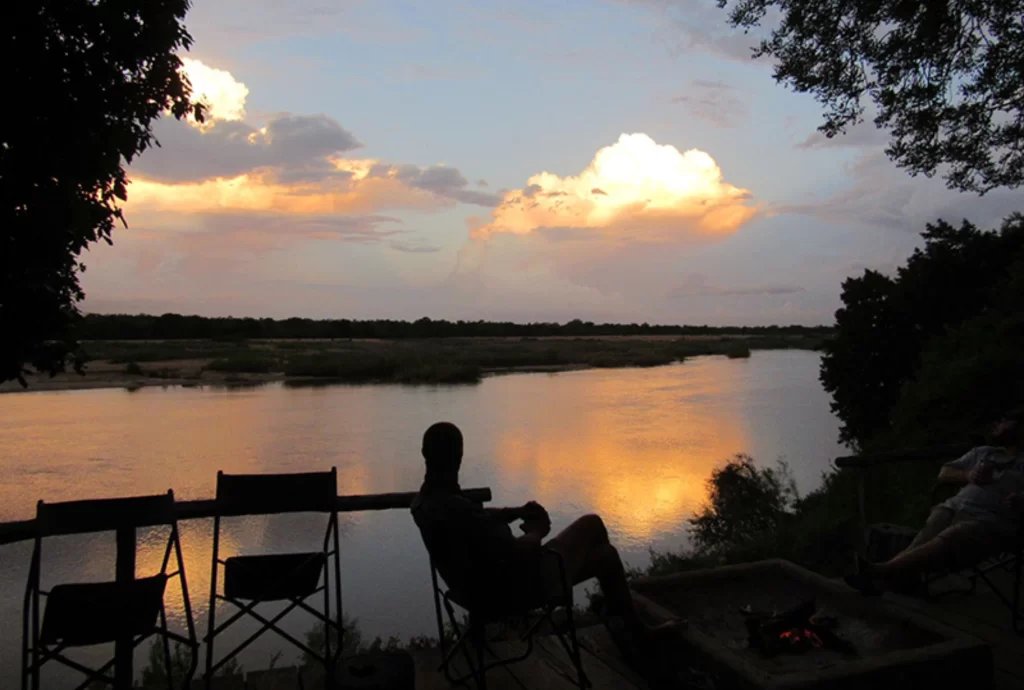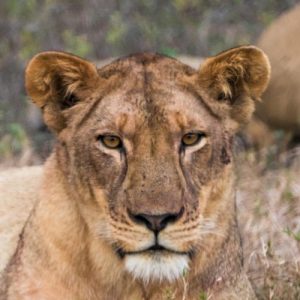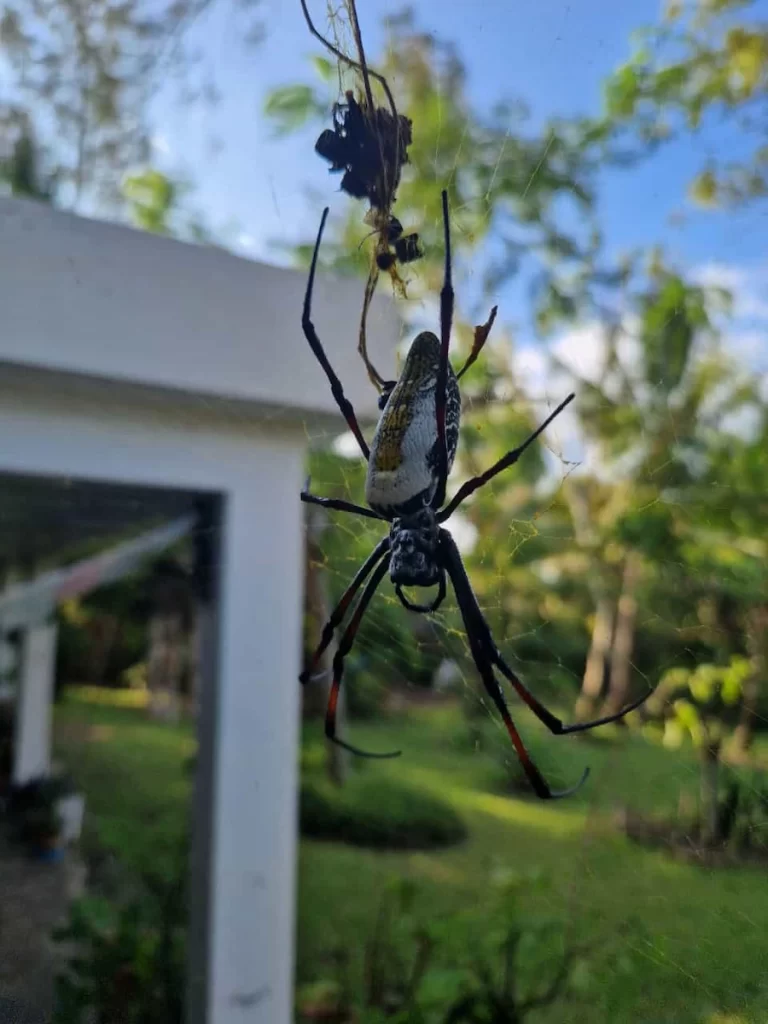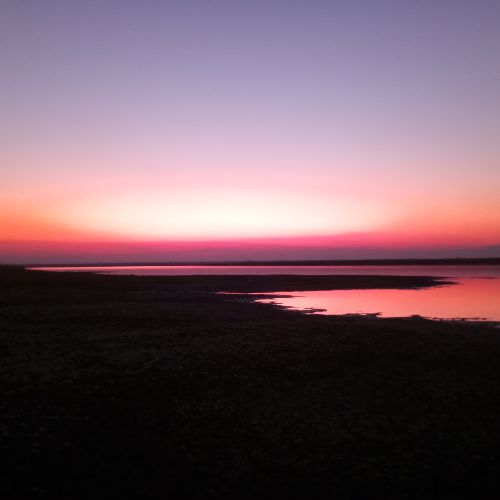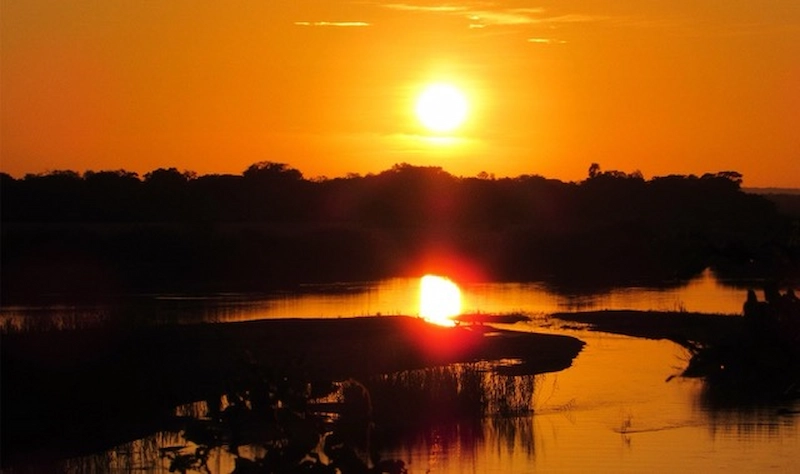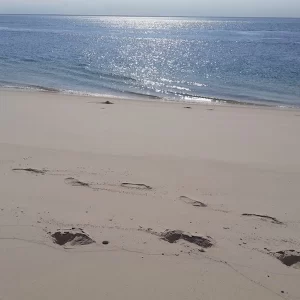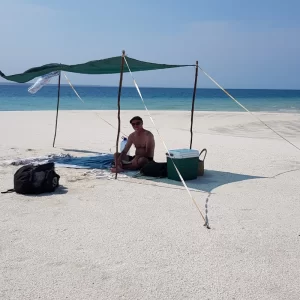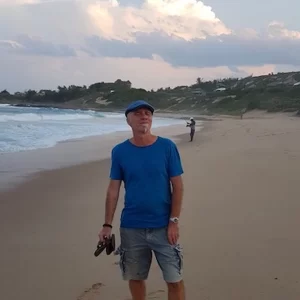Nature and Us
Living in Africa brings you closer to nature. Along with Mozambique’s 2,500 kms of coastline, there are also vast tracts of bush and woodlands. Even if you are living in a busy town, like us here in Vilanculos, you are never too far away from nature. In our garden, for example, we get the odd stray baboon, snake, the beautiful golden orb spider and a myriad bird and plant life.
We are not separate from nature
Nature and us are simply part of one another. We cannot be considered separate. We are not separate. But if you look around at the modern world, we can easily see that we, as humans, consider ourselves to be apart from the natural world. It is us and nature over there, me separate from the natural world.
But the natural world is at the very heart of our being. If we are willing to listen and pay attention to nature, we begin to recognize our innate sense of connection and belonging. Losing touch with nature is losing touch with ourselves.
Within a five-minute drive from our house, you’ll find yourself in the bush, complete with its small rural villages, sand roads and fauna and flora of Africa. But if you want to experience African bush at its best, you must go to one of the national parks. Zinave National Park is closest to us, a 200kms trek over sand roads but well worth the visit as it has the Big Five and has not yet been fully developed for tourism – a true adventure.
We’ve also been to the magnificent Gorongosa National Park. We’ve travelled to quite a few parks throughout Africa and not many can compare to this one. If you are tempted to take a safari trip to Africa, then you don’t need to go to the well-visited safari-lands. Gorongosa has it all – and you won’t have to queue up with twenty other vehicles to see a pride of lions.
There’s nothing quite like sitting outside your safari tent, overlooking a river that is teeming with birdlife, crocodiles and snorting hippos, or sitting under a canopy of stars in the breathtaking night sky and realising just how small we are in the universe. Perfect for a meditation practice, tuning into the sounds and the silence of pure nature.
Part of something larger than ourselves
Several studies have shown that, when we connect with nature, we are reminded that we are part of something larger than ourselves. Faced with the awesome vastness of the universe, we can feel flooded with gratitude.
Nature gives rise to all life on our planet, including our own, and connecting with the natural world is an integral part of our happiness and well-being. But somewhere along the way we have forgotten that we are all part of this connected world, and we have gradually separated ourselves from nature. I read some shocking figures recently from the UK, where 84% of its population now live in urban centres. It was reported that in 2016, 1.3 million British kids had never visited the countryside, leading to a condition called “Nature-Deficit Disorder” with symptoms such as poor concentration, mental and physical illness and under-developed sensory perception.
The benefits of nature
There are many scientific studies that show that spending time in nature has huge benefits for us humans. For example, Japanese forest bathing (shinrin-yoku) – basically taking a walk in a forest – can help us quieten our minds, relax tense muscles, strengthen the immune system, reduce blood pressure and reduce levels of the stress hormone cortisol. We could all do with some of that.
Nature can also help us realise two universal truths that we as humans tend to ignore: impermanence and interconnection. A simple walk in nature gives us so many examples of this. The crunching underfoot of once green and vibrant leaves, now dead, drying and brown. The decaying tree trunk that blocks the pathway. In Africa, the sun-whitened bones of an animal that once roamed the plains. All signs pointing to the basic fact of our lives – things don’t last forever. There is always coming and going. There is always change.
Interconnection
All plants, animals and minerals are part of nature. They do not separate themselves from one another. They simply co-exist. What we call a tree does not exist as a tree in isolation of all the things to which it is connected – soil, rain, the sunlight, air.
This reflects the interconnection and interdependency of everything. The dead leaves will decay further and nourish the soil which will give life to new plants and trees in the future. A closer look to the decaying trunk will see it teeming with life and mini communities. Without knowing it, we humans are also always in harmony with the natural world – breathing in the carbon dioxide that trees and plants and algae give us and, in an outbreath, sending back the oxygen that keeps them alive. We are the same. We are an integral part of the natural world. Yet our conscious mind seems to perceive us as separate.
The concept of Interbeing
Vietnamese Zen Master Thich Nhat Hanh had a wonderful phrase for this interconnection and interdependency. He called it “interbeing”. We “inter-are” with everything and everyone else. If we can see this, then we can begin to understand how we are an integral part of something much larger than ourselves: the web of life. The separation we have created between ourselves, and nature starts to fade, and we realize that our well-being is intimately interlinked with the well-being of the rest of the natural world. He writes: “Everything relies on everything else in the cosmos in order to manifest – whether a star, a cloud, a flower, a tree, or you and me”.
We cannot be considered separate. The natural world is at the very heart of our being. If we are willing to listen and pay attention to nature, we will begin to recognize our innate sense of connection and belonging. Losing touch with nature is losing touch with ourselves.
I am running a 7-day Beach, Bush and Wellbeing retreat in October 2025, exclusively for a small group of men which will take in both the Bazaruto Archipelago and an overland adventure to Zinave National Park. We’ll also be taking an adventure into the mind as part of the trip, with daily meditation practices in pristine nature. Imagine doing your morning meditation here.
Click here to inquire about this retreat.

